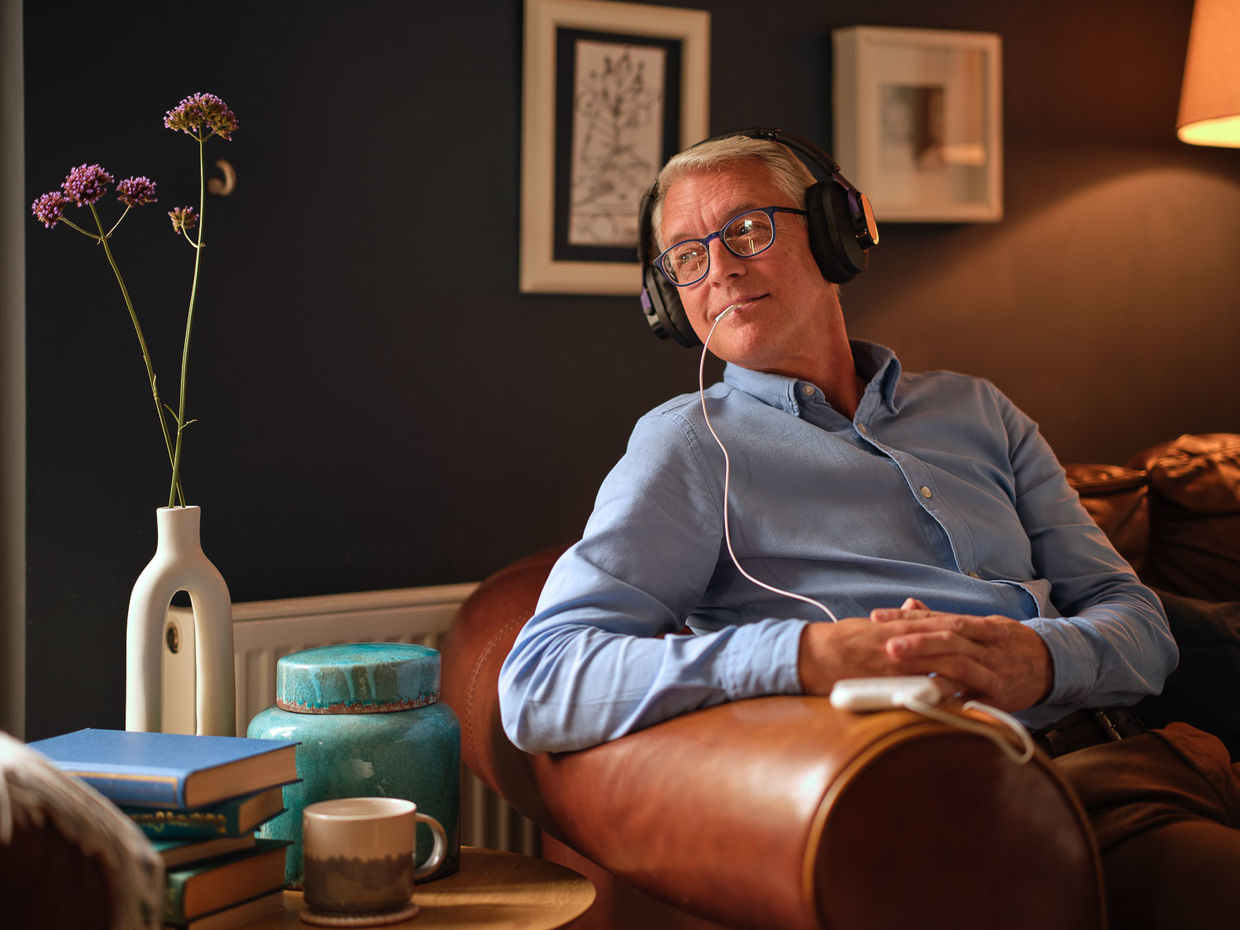
(Courtesy Lenire)
Hearing is the ability to perceive sounds through vibrations that are interpreted by your brain. These sounds can be a baby's cries, a conversation with others, music, and even the rain falling on your roof. These are all external sounds.
But some people experience a high-pitched buzzing or ringing in their ears, a condition known as tinnitus. These sounds are internal and cannot be turned off, reported NPR. In fact, more than 25 million people in the US have this condition. While there is no cure, there have been many strategies to help reduce the symptoms. Now a new device, that has been approved by the FDA, can treat tinnitus in a very unusual way; by using electrical stimulation of the tongue.
The Lenire Device
The Lenire is the first bimodal neuromodulation device approved for tinnitus treatment in the US, according to the American Tinnitus Association website. Developed by the Irish company Neutomod Devices, LTD, the device uses mild electrical pulses to the user’s tongue while the person listens to different sounds via headphones which helps to stimulate changes in the brain.
View this post on Instagram
A clinical trial of the device found that the Lenire reduced the severity of tinnitus in more than 80 percent of the participants during a 12-week period and this improvement could last for a year.
It works because the device shifts the user's attention away from the buzzing or ringing sounds, reported NPR. Audiologist Brian Fligor who treats tinnitus patients in Boston became one of the first to use the device in the US.
He told NPR: “A good candidate for this device is somebody who's had tinnitus for at least three months,” but he cautions that people should be evaluated first to make sure there's not an underlying medical issue that is causing the ringing. Some patients also benefit by using a combination of a hearing aid and the new device.
Patient success stories
Michael McCreary of Marietta, Georgia first experienced tinnitus in 1998 after taking his teenage daughters to a rock concert, reported Fox5Atlanta.
“We got there and everything was fine,” McCreary told Fox. “The warm-up was great. The second the band came on stage, and it was the 4,000 screaming girls. That was the problem, not the music.” The loud noises were painful and a few days later he began hearing an audio tone that didn’t go away.
In the fall of 2023, McCreary began treatment with the Lenire with Audiologist Dr. Melissa Wikoff. “I have been specializing in tinnitus for the last 15 years,” Wikoff told FOX 5. “This is the most powerful tool that I have in my toolbox to treat tinnitus. It's pretty incredible.”
It took about a month of treatments for McCreary to notice a difference. While the tone is still there, it no longer dominates his life. “It doesn't wake me up, doesn't keep me from going back to sleep,” he said. “I'm able to concentrate at work. I'm able to sit at the computer.”
The device also helped Victoria Banks, a singer and songwriter in Tennessee who developed tinnitus three years ago, according to NPR. She was treated by Fligor in Boston.
Banks noticed results after 12 weeks of treatments. While the ringing did not completely disappear, it is barely noticeable now.
“It's kind of like if I lived near a waterfall and the waterfall was constantly going," she said. “Over time, the waterfall sound fades out of consciousness. My brain is now focusing on other things.”
One of the drawbacks of the device is that it is expensive and not covered by insurance. Wikoff told FOX5 that she has been writing letters for patients and some have received some partial reimbursements.
But the success stories show that people using the Lenire have found relief from the deliberating symptoms of tinnitus and it proves that silence is really golden.
YOU MIGHT ALSO LIKE:
Good Vibrations: The Healing Power of Sound
This Sound-Tracker Is on a Mission to Preserve Silence
Scientists Found Proteins that Could Restore 'Irreversible' Hearing Loss







